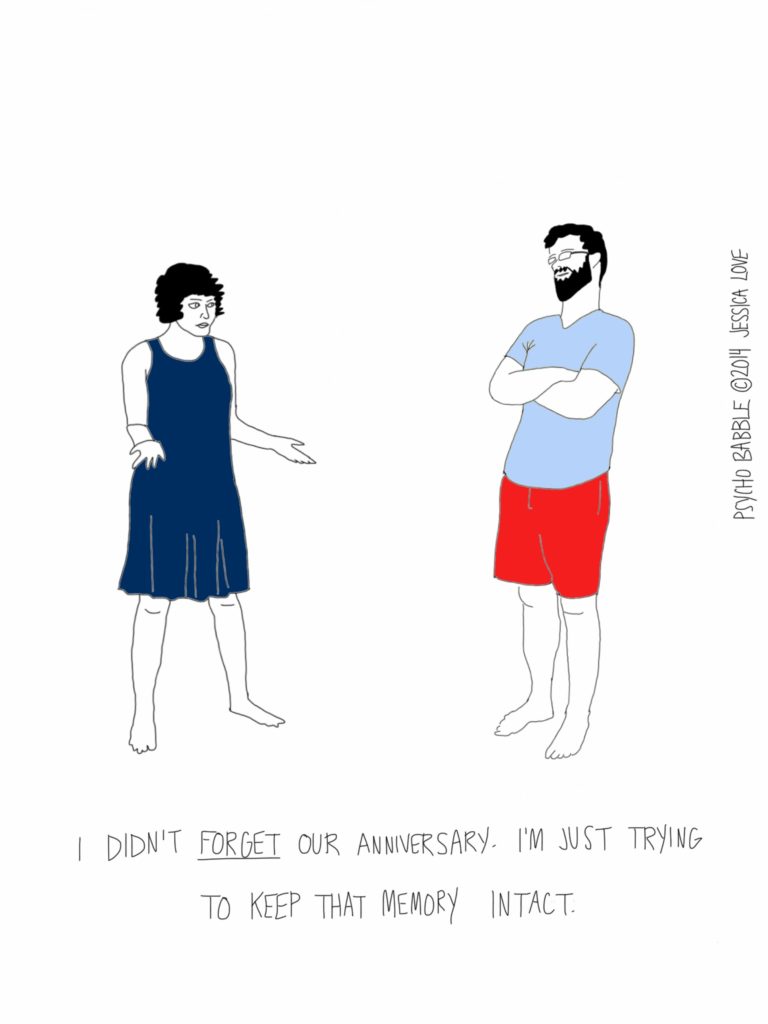
That trip you went on when you were seven, the goal you scored in high school, the day your parents announced their divorce: with every attempt at remembering the past, your brain doesn’t just fish around for memories as if it’s after a toy at the bottom of a cereal box. To remember is to relive. The neurons involved in a memory’s formation are the same ones, days or months or years later, charged with gamely rehashing it.
Or whatever it has turned into. Memories are as suggestible as drunk teenagers. When first formed, they’re fragile, susceptible to passing thoughts: What if? Did that happen? But even later, after time has toughened them, they are not intractable. Consider Elizabeth Loftus’s research on the fallibility of eye-witness testimony: Merely asking us whether two cars smashed into each other, versus contacted each other, can influence our recollections of how fast the cars had been traveling.
In the past decade, researchers have begun to theorize that the very act of recollection seems to temporarily make memories vulnerable to modification—that every time our neurons revisit our past, they invite (and incorporate) commentary from the present, like who we are today and what we now believe to be true. The ramifications are unclear. Some neuroscientists see an opportunity to rewrite distressing memories; others caution that the effectiveness of such a strategy is likely overblown. And yet, it is tempting to take the idea to its illogical, logical conclusion: that the only way to remember purely is to not remember at all.


